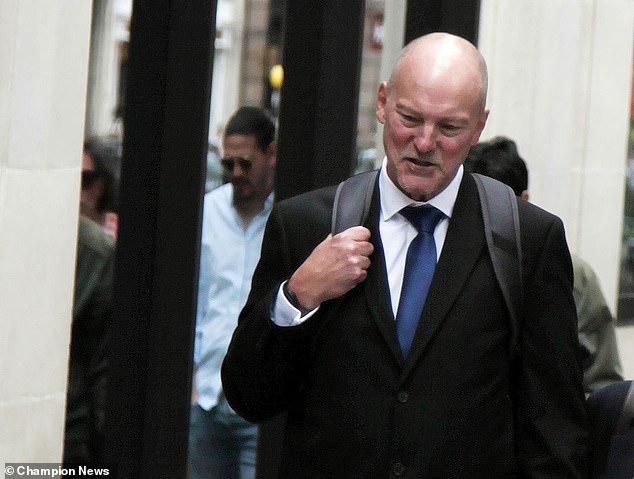A therapist who was struck off after having sex in a car with a patient he had treated for a driving phobia has won a High Court bid to save his career.
Neale Haddon, who has been a psychotherapist for over 20 years, had an intense fling with a former patient after she proposed to meet 10 days after their final session.
During their final appointment, he cleared her as having made a ‘significant recovery from travel and driving phobia, including being able to now drive on busy motorways and urban roads with only residual or no anxiety’.
The woman suggested they meet for a drink or a coffee, but Mr Haddon insisted they couldn’t see each other ‘for a while’ due to the rules governing patient-counsellor relationships.
However, just 10 days later, he agreed to meet and they began a six month relationship, engaging in ‘intimate relations’ at her flat and once in Mr Haddon’s car.
At a UK Council for Psychotherapy (UKCP) disciplinary panel Judge Dunlop explained that the sexual relationship started ‘on or about 30 or 31 December 2019 and continued until June 2020’.
‘They met several times, normally at her flat and once in his car. On each occasion they engaged in intimate relations. They exchanged naked and sexual images and had phone and video sex,’ Judge Dunlop said.
The disciplinary panel decided that Mr Haddon showed ‘limited insight’ into his misconduct and that striking him off was ‘the only appropriate sanction’.

Neale Haddon, (pictured) who has been a psychotherapist for over 20 years, had an intense fling with a former patient after she proposed to meet 10 days after their final session

The disciplinary panel decided that Mr Haddon showed ‘limited insight’ into his misconduct and that striking him off was ‘the only appropriate sanction’. Pictured: Mr Haddon outside High Court
‘He had engaged in a sexual relationship with a vulnerable patient over a period of time and, whilst he had admitted some of what occurred, his admissions were neither clear nor full,’ the panel found.
Mr Haddon challenged the decision in the High Court, claiming the professional watchdog body acted unfairly and in breach of contract, also imposing a sanction that was far too harsh.
Attacking the termination decision, his barrister, Simon Butler, argued that the panel’s decision was ‘disproportionate’ and also ignored the insight he showed.
He also challenged the panel’s finding that a hug Mr Haddon shared with his client during their final therapy session may have been ‘sexually motivated’.
Judge Dunlop accepted the panel’s approach to this issue, commenting: ‘In my judgment it was rational and open to them to reach the conclusions that the hug was sexually motivated’, adding that Mr Haddon ‘must at some level have been aware that accepting the hug might further encourage her to contact him after therapy’.
He also said the counsellor had made a serious misjudgment by embarking on a fling with his former patient after such a short stretch of time.
Judge Dunlop said: ‘Any psychotherapist who begins a sexual relationship with his patient only 10 days after their therapy has concluded should realise that their conduct might lead to termination.
‘In this case, not enough time had passed. Ten days was plainly not enough to ensure “proper closure”.’
But he ruled against the UKCP, finding that the Adjudication Panel had ‘taken against’ Mr Haddon, and dealt too briefly with the key issue of what sanction to impose on him and approached parts of the case in an ‘unfair and/or unreasonable’ manner.
The judge cited the report of an expert observer who had interviewed Mr Haddon and found that he showed clear insight and presented no risk to the public.
‘My overall assessment is that the adjudication panel took against the claimant after hearing his oral evidence and failed to balance their adverse impression of him against the available evidence, including both the documentary evidence and the actual words the claimant used in giving oral evidence,’ he said.
The judge said that he and the UKCP had agreed that if Mr Haddon won, the previous panel’s ruling would be cancelled and his case heard again by a fresh panel who would be aware of the High Court’s decision.
‘The decision on sanction will be for that new adjudication panel, not me,’ the judge concluded.












